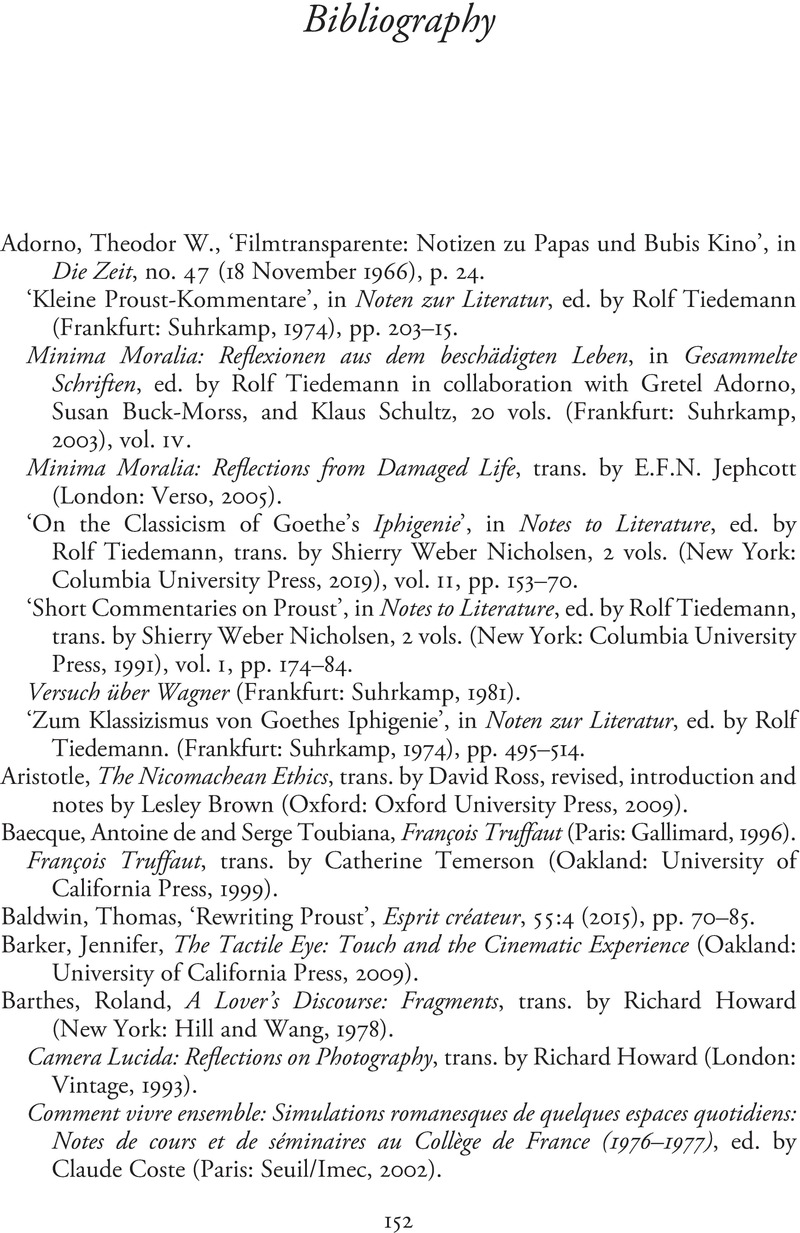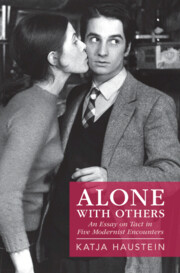Book contents
- Alone with Others
- Alone with Others
- Copyright page
- Dedication
- Epigraph
- Contents
- Preface
- Abbreviations
- Introduction
- Chapter 1 Tact’s History
- Chapter 2 Proxemics (Proust)
- Chapter 3 Alienation (Plessner – Adorno)
- Chapter 4 Individuation (Truffaut)
- Chapter 5 Approchement (Barthes)
- Coda
- Acknowledgements
- Notes
- Bibliography
- Index
- References
Bibliography
Published online by Cambridge University Press: 26 October 2023
- Alone with Others
- Alone with Others
- Copyright page
- Dedication
- Epigraph
- Contents
- Preface
- Abbreviations
- Introduction
- Chapter 1 Tact’s History
- Chapter 2 Proxemics (Proust)
- Chapter 3 Alienation (Plessner – Adorno)
- Chapter 4 Individuation (Truffaut)
- Chapter 5 Approchement (Barthes)
- Coda
- Acknowledgements
- Notes
- Bibliography
- Index
- References
Summary

- Type
- Chapter
- Information
- Alone with OthersAn Essay on Tact in Five Modernist Encounters, pp. 152 - 162Publisher: Cambridge University PressPrint publication year: 2023



